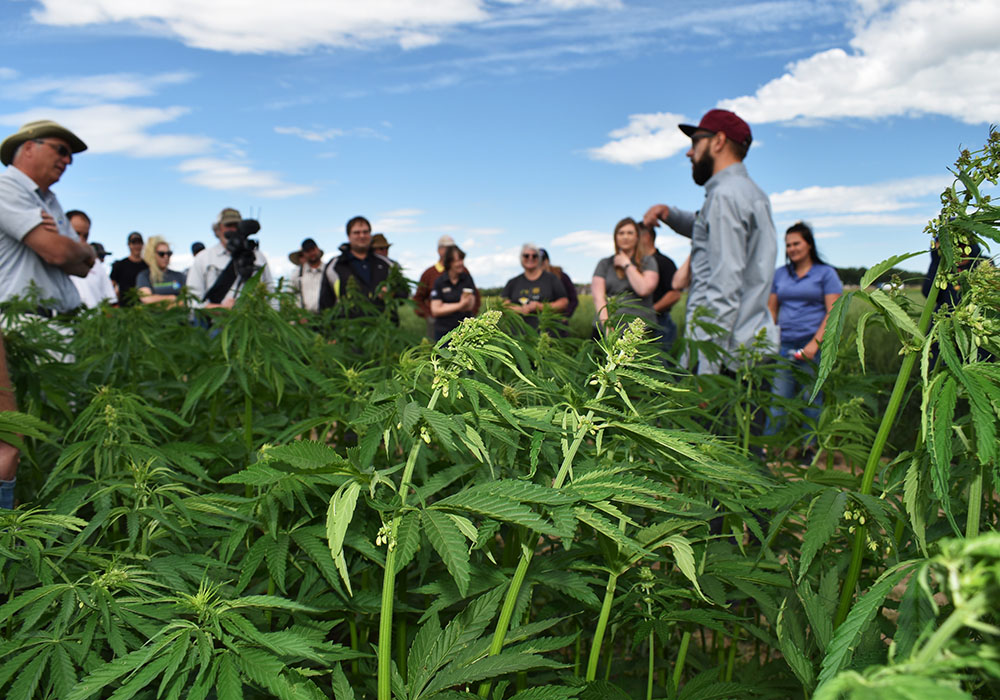About 100,000 acres of hemp have been grown annually in Canada over the last several years but those in the industry anticipate an increase to 500,000 acres in the next five years as markets and varieties develop.
There are a few hurdles in the way.
“Right off the top, just the process of becoming registered and maintaining your licences to be a hemp producer is tough,” said Ted Haney, executive director of the Canadian Hemp Trade Alliance.
“It’s all managed through Health Canada and while they work hard and they’re good people, the process established today is not efficient.”
Read Also

Farming Smarter receives financial boost from Alberta government for potato research
Farming Smarter near Lethbridge got a boost to its research equipment, thanks to the Alberta government’s increase in funding for research associations.
Haney cited long delays in obtaining a licence to grow hemp. Once obtained and the crop grown, seed can only be sold to another industrial hemp company that will either export it or process it for food.
Producers who are approved to harvest flowers and leaves from the crop can only sell to licensed cannabis processors, which requires specific operating procedures, management practices and documentation.
That means the markets for hemp seed and cannabinoids, the derivative from stems and leaves, are fairly limited, said Haney.
There are no restrictions on sale of hemp fibre but supply is about 10 times the capacity of current Canadian fibre processors.
“I think we need between $300 and $500 million in capital investment in eight to 10 new large scale decortication plants across Western Canada in order to have the capacity that will match the production and create a viable market. That’s not going to happen overnight. It will happen step by step,” Haney told those at a recent Farming Smarter field day in Lethbridge.
“Anybody that’s tried to open up a primary processing plant and has hoped the markets would unfold, have generally really, really struggled. So it’s going to be a longer-term slow roll out.”
As for the livestock feed market, it is still illegal to feed hemp to livestock.
“We do have a massive regulatory challenge that we’re addressing now and that is hemp seed and its derivatives are not registered for sale as a livestock feed. So it’s illegal to feed this product to any livestock category species.”
Haney said the Alliance is completing the application process this year and expects hemp seed and other plant parts will be approved for livestock feed by 2020. That will provide a market for seed not acceptable for food, as well as the material remaining after cannabinoid (CBD) extraction.
“We are going through that process now, but it’s going to take a couple-hundred-thousand dollars and a couple of years to get that done, to bring hemp back to a place where really it should never have been away from,” he said, in reference to hemp being used as livestock feed for decades until it was ruled illegal in Canada in 1938.
Haney said the industry is also advocating for change in how hemp-derived CBD can be sold in Canada. Regulations now dictate sales only to licensed cannabis producers and there are three markets: export to recognized medical marijuana programs, Canadian medical marijuana programs or in the provincially regulated retail market that can only sell it via another “carrier” oil.
The industry wants CBD to be available in energy bars and in natural health products, with appropriate labels indicating it is present.
“This is a non-intoxicating, non-addictive, non-habituating product that has a really long history of … health benefits. So let’s move on. Use the risk assessment processes that Health Canada says they use, and actually apply them to CBD,” said Haney.


















